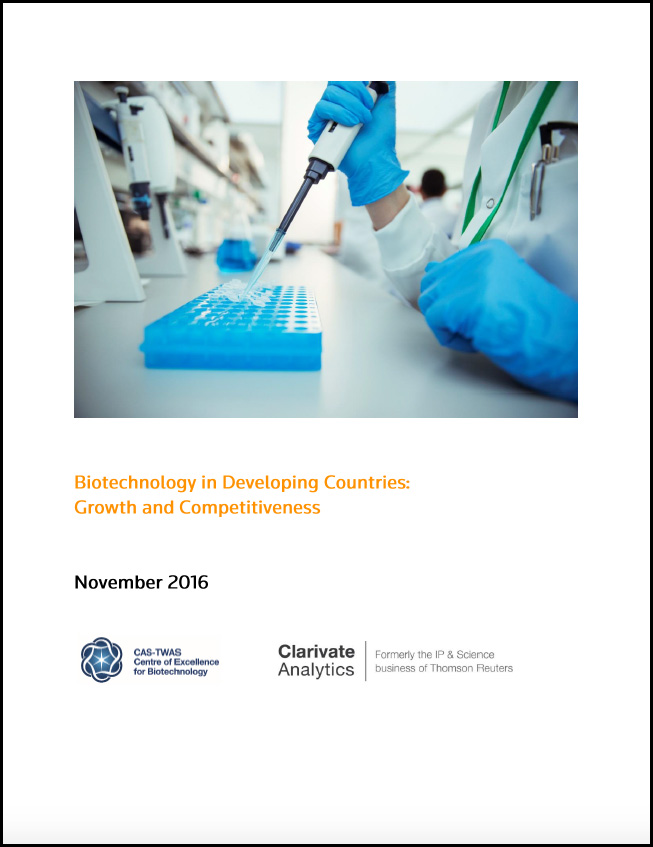 The developing world is achieving significant growth in a broad cross-section of biotechnology fields, many of them directly tied to food production, health and other dimensions of human well-being, says a new analysis commissioned by the CAS-TWAS Centre of Excellence in Biotechnolgy.
The developing world is achieving significant growth in a broad cross-section of biotechnology fields, many of them directly tied to food production, health and other dimensions of human well-being, says a new analysis commissioned by the CAS-TWAS Centre of Excellence in Biotechnolgy.
The first-of-its kind report, ‘Biotechnology in Developing Countries: Growth and Competitiveness’ was released today by the Beijing-based centre, which is organized by the Chinese Academy of Sciences (CAS), and The World Academy of Sciences (TWAS). The CAS-TWAS Centre of Excellence for Biotechnology report provides an assessment of research and patents in the field across the global South.
"This report is, to the best of my knowledge, the first extensive document summarizing the development status of a specific technology area in the developing world," writes Bai Chunli, the president of both CAS and TWAS, in the foreword. "It provides a strong, valuable assessment of biotechnology activities in developing countries, as measured in scientific publications and patents."
Simultaneously, it highlights the important role of international collaboration in the rapid pace of growth in the field, especially in sub-Saharan Africa.
The report found that from 2005 to 2014:
- Biotechnology research has grown steadily, with a 117% increase in published studies. However, biotechnology research from the developing world is less cited in other research papers – only about 83% as much.
- Over 85% of the biotech papers that were co-authored by science-and-technology lagging countries resulted from international collaborations. Countries in sub-Saharan Africa in particular benefited from international collaboration, resulting in a notably high impact.
- Patent filings in the developing world have been most active in industry, food and environmental biotechnology sectors. Most of those patents have been new enzymes, totalling 79,694 – comprising of more than 40% of the overall patents.
- China leads in biotechnology papers produced in the ten-year period with 78,263, followed by India with 24,081 and Brazil with 17,769. It also leads all countries with 149,339 patent families, followed by India with 15,420 and Mexico with 14,574
As a critical driver of science that boosts food resources, improves nutritional health, and battles environmental pollution, biotechnology is one of the most productive research fields of our time. The report broadly surveys research and development work in biotechnology carried out from 2005 to 2014.
Bai said the report could be valuable to governments and policymakers, as well as related research sectors, industry sectors and international bodies. He added that CAS and TWAS hope the report will help to nurture a flourishing biotechnology sector in all developing countries and regions.
“Embracing the great opportunities of the emerging bio-economy, developing countries need to sharpen their awareness, increase their commitment and gradually build their own strength in the dynamic fields of biotechnology,” he writes in a foreword to the report. “Only in that way can they fully exploit its potential to drive economic growth and social development."
The report also includes other findings: And East Asia, Southeast Asia and the Pacific Region had a particularly strong increase in biotechnology papers. That region also put out the most patents. Within biotechnology, it found, the most published field of research was infectious diseases.
The report is available online.
Sean Treacy

